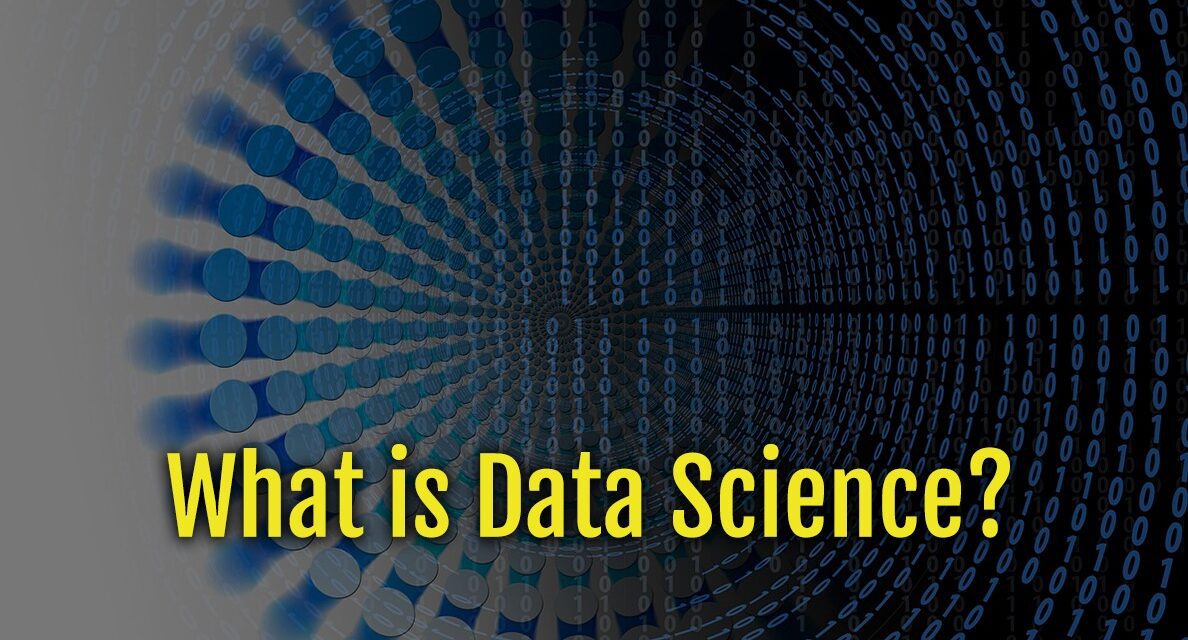Introduction
In today’s data-driven world, information is abundant, and the ability to make sense of it is paramount. This is where data science comes into play – a multidisciplinary field that combines scientific methods, algorithms, and processes to extract knowledge and insights from vast amounts of data. In this blog, we will delve into the world of data science, exploring its core concepts, applications, and the value it brings to various industries.
Defining
Data science can be broadly defined as the study of data – its collection, storage, analysis, and interpretation. It involves a blend of skills from diverse domains such as statistics, computer science, mathematics, domain expertise, and data engineering. The primary goal of data science is to uncover meaningful patterns, trends, and relationships within data that can lead to informed decision-making.
Key Components
Encompasses several key components:
Data Collection: The process of acquiring structured and unstructured data from various sources, such as databases, APIs, web scraping, sensors, and social media platforms.
Data Cleaning and Preprocessing: This step involves preparing the data for analysis by handling missing values, outliers, and inconsistencies.
Exploratory Data Analysis (EDA): EDA involves visually exploring and summarizing the data to gain insights and identify initial patterns.
Statistical Analysis: Applying statistical techniques to draw meaningful conclusions and make predictions from the data.
Machine Learning: Using algorithms and models to enable computers to learn from the data and make predictions or decisions without explicit programming.
Data Visualization: Presenting data in a visual format to communicate complex findings effectively.
Data Interpretation and Storytelling: Analyzing results and communicating them in a meaningful and actionable manner to stakeholders.
Applications
Applications in a wide range of industries, including:
Business and Marketing: Understanding customer behavior, predicting market trends, and optimizing business processes.
Healthcare: Improving patient care, disease prediction, drug discovery, and medical image analysis.
Finance: Risk assessment, fraud detection, algorithmic trading, and personalized financial services.
Social Sciences: Analyzing social media data, studying human behavior, and conducting sentiment analysis.
Environmental Science: Studying climate patterns, natural disasters, and environmental conservation.
Challenges
Despite its incredible potential, data science is not without challenges:
Data Quality: Poor data quality can lead to inaccurate results and misleading insights.
Privacy and Ethics: Handling sensitive and private data responsibly while ensuring compliance with ethical standards.
Interdisciplinary Skills Gap: The diverse skill set required for data science makes finding well-rounded professionals a challenge.
Model Interpretability: Understanding and explaining complex machine learning models and their decisions.
The Future
As technology continues to advance, data science will play an increasingly critical role in shaping our world. With the advent of big data, artificial intelligence, and machine learning, the field is expected to drive innovation, automation, and efficiency across various sectors.
Conclusion
Data science is an ever-evolving field that empowers organizations to leverage their data assets, gain valuable insights, and make data-driven decisions. With its interdisciplinary nature and transformative potential, data science is at the forefront of the modern age of information. As we move into a future driven by data, the importance of data science expertise will only grow, making it an exciting and promising career path for aspiring data scientists and a driving force behind innovation in diverse industries.





